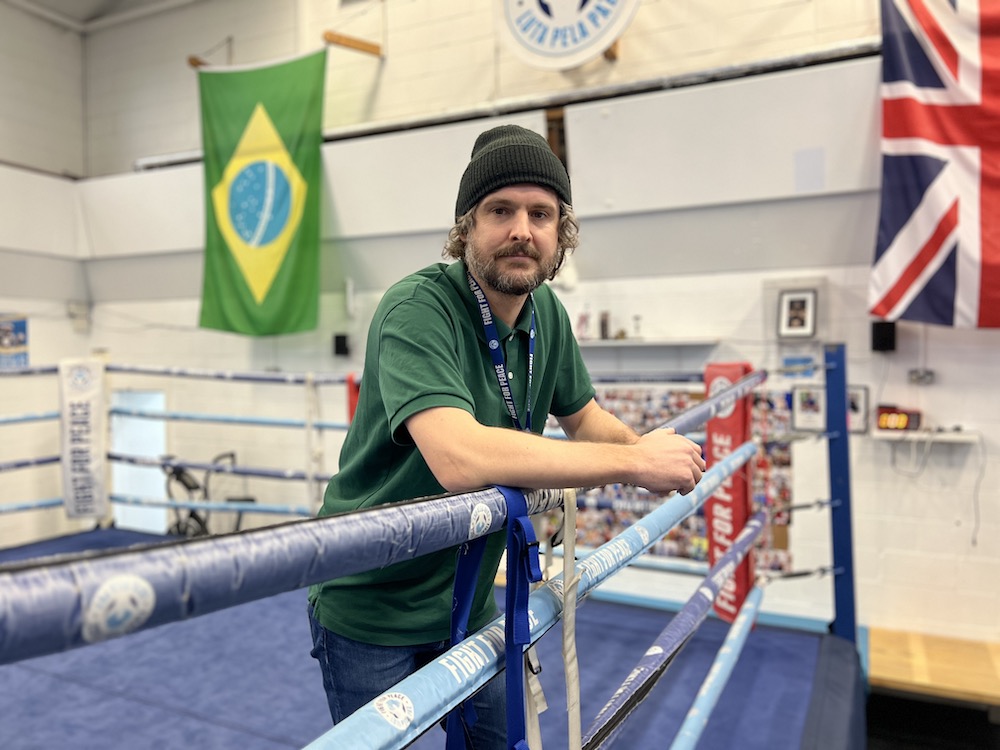In our next staff thought piece by the team at Fight for Peace, our Head of Operations, James Morgan highlights the importance of language when telling the stories of young people in our communities, and why amplifying the truth is key in supporting young people to reach their goals and aspirations.
“The art of telling stories is the most powerful form of communication we have. As humans we’ve been doing it for millenia and in 2024, with the abundance of information bombarding us, we see more than ever the power of stories to engage, to explain, and to inspire.
At Fight for Peace our story connects us, it gives us a sense of belonging and purpose, a notion of where we came from and where we are going. It reflects our birth in Brazil, our growth in east London and around the world, and the many individual stories of young people and colleagues who have built on our legacy.
The way in which we tell our story, and the story of those young people and communities that Fight for Peace serves can have profound and long lasting impacts and must always be treated with great care.
Where our storytelling matches the optimism, talent and potential of our young people, it has the strength to empower, to influence perspectives, and to inspire social change.
Equally, where stories ignore complexity and context, or fail to challenge stigmatising social and ethnic stereotyping, they can do considerable harm to young people’s progress, and do a great disservice to our community.
As we support and inspire young people to build their futures, to challenge what’s possible for them, and reach their full potential, it’s vital that we do the former and not the latter.
I am deeply proud of Fight for Peace’s commitment to telling stories in an authentic, representative and inclusive way. This means using language and imagery that genuinely reflects the strength and power of our young people, working with partners and supporters to ensure stories are amplified in the right way, and being vocal where we think our young people and communities are being misrepresented.
I love how at Fight for Peace young people are elevated as storytellers – our young filmmakers, podcasters and content creators – and supported to express themselves with awareness of the pros and cons of exposure in a digital age.
I believe it’s vital that we strictly protect the principle that people’s stories are theirs to tell or not to tell, and ensure that individual young people’s stories represent their peers and community rather than sensationalist agendas.
To be clear, this is not putting a positive spin on things, rather it is championing authenticity and representation, something which in my opinion is not seen enough in many narratives we read in the newspaper, or see on TV and social media.
Those of us that work at Fight for Peace have the privilege of seeing the greatness of young people on a daily basis, a greatness that is too often distorted by the noise of reductionist and harmful mainstream narratives.
We are so proud of what young people are achieving and the chapters they are writing in their own life stories as well as the story of Fight for Peace. We want them to be equally as proud of being part of a community like Fight for Peace, and of the way we tell our and their story.
By reflecting and amplifying the truth of young people’s power and potential, we not only affect how young people are perceived and treated in society, we also influence how they see themselves, their peers and their community. The impact of this care for storytelling on the growth, progress and futures of our young people is far reaching and should be protected at all costs.”

